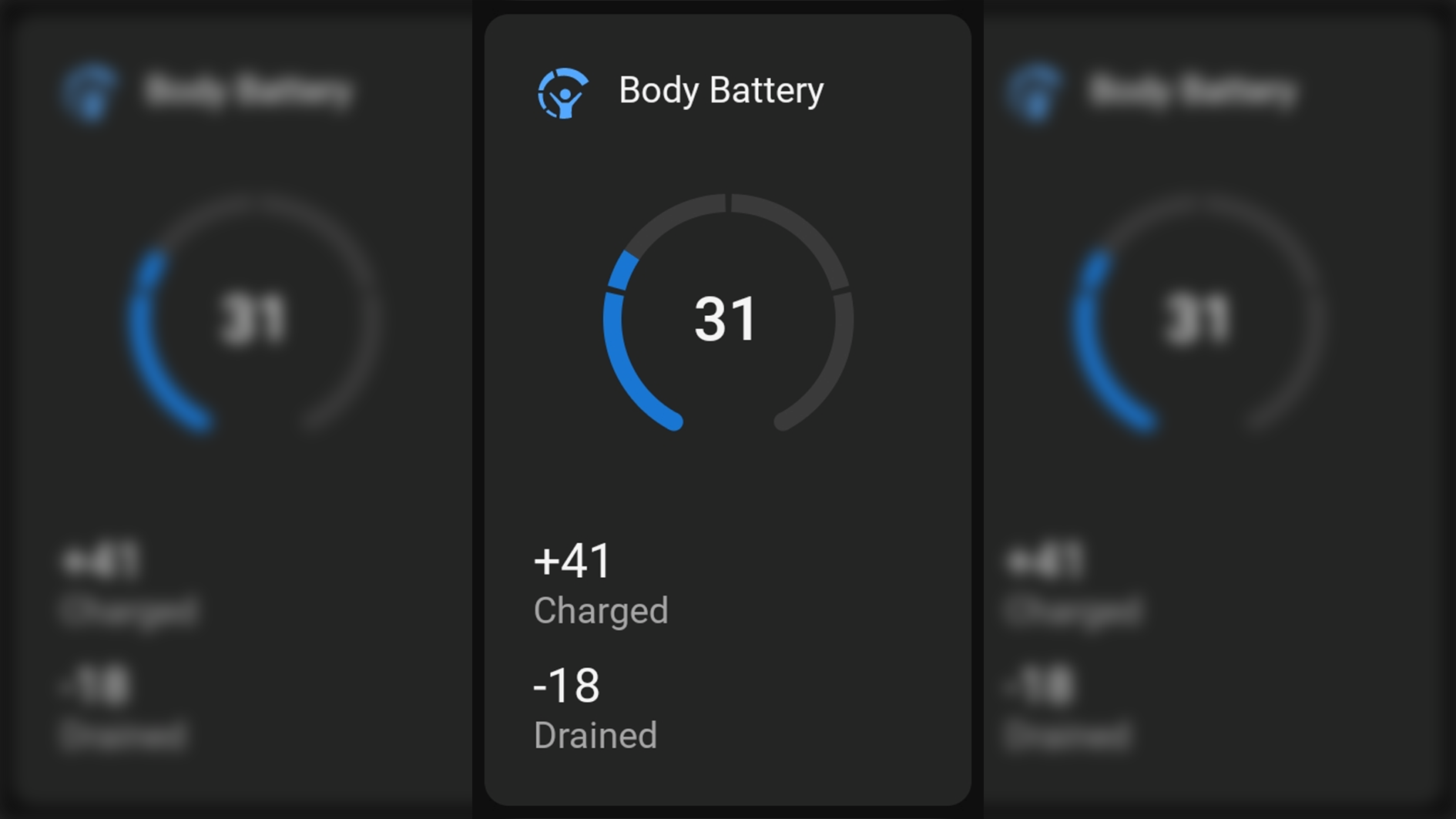What is Garmin Body Battery, and how do you boost it?
Here's how to track your energy levels and get the most out of Garmin's super-smart Body Battery function

All the latest inspiration, tips and guides to help you plan your next Advnture!
You are now subscribed
Your newsletter sign-up was successful
If you own a Garmin watch, you'll have a passing familiarity with the Body Battery score – a number out of 100 that roughly corresponds with how much energy you have for the rest of the day, declining throughout the day and rising at night. But what exactly does it mean, how it is calculated, and how can you give it a boost?
How is Body Battery calculated?
Body Battery is calculated using a combination of biometric readings collected by your watch throughout the day, and at night. These include your daily activities (incidental exercise like walking, as well as tracked workouts), your Sleep Score, and periods of rest (indicated by a low heart rate) and stress (calculated using heart rate and heart rate variability).
All this is done through the Firstbeat Analytics engine, which is Garmin's system for taking raw data and converting it into meaningful information that you can understand and use.
What does Body Battery mean?
The score gives you an indication of how much energy you have to tackle the day ahead. A high score means you should be able to handle an intense workout or a take on a stressful day without feeling burnt out at the end. If your Body Battery is still high by bedtime, consider doing more next time. It's fine to take it easy sometimes and we all need days to rest, but using energy while you have it will help your fitness and resilience in the long term.
If you wake up with a low score, however, you should take things a bit easier. Exercise is still important, but manage your expectations of yourself and try not to let your energy bottom out. These aren't days for setting new personal bests and achieving your full potential.

Your Body Battery reading will recharge overnight, but not necessarily all the way to 100. Things like insufficient sleep, poor sleep quality (too many interruptions, for example), alcohol, and illness can all prevent you from starting the day fully rested and recovered. Your body battery may also stay lower if you're recovering from a tough workout.
Sometimes your Body Battery may be low for reasons that are personal to you. If you are naturally introverted, you may find big social gatherings stressful enough to have an impact, or you may be worn out by driving.
All the latest inspiration, tips and guides to help you plan your next Advnture!
How can you boost your Body Battery?
If you find your Body Battery is often low, adjusting your daily habits can help you improve things. For example, you might be pushing yourself too hard with frequent, intense workouts and not allowing yourself sufficient time to recover.
You might also be working too hard, or overdoing socializing situations that you find stressful. Finding your own ways to cut down on these stressful scenarios will boost your body battery.
Drinking alcohol can also suppress your Body Battery while your body handles the stress of metabolizing it. Drinking may affect your sleep as well, and poor quality sleep over a sustained period will mean your score never rises to its maximum.
The single best way to boost your Body Battery is to get a good night's sleep. What qualifies as a 'good night's sleep' depends on your body and lifestyle, but as a general rule, most adults need seven to nine hours per night.
To give your score a boost in the short term, you can try taking some time out to relax (your watch has some simple breathing exercises that can help bring down an elevated heart rate), or take a nap of about 30 minutes, provided it's not too close to your usual bedtime.
You can make your Body Battery more resilient by using energy while you have it, and getting sufficient rest afterwards. This will let you work harder in the future, with less drain on your reserves.
- The best running watches: our top recommendations tested and rated
- The best GPS watches: feature-packed timepieces to keep you on course

Will Symons developed his love of the outdoors as a student, exploring every inch of Sussex’s South Downs national park and swimming off the Brighton seafront. Now a staff writer for Advnture, Will previously worked as a freelance journalist and writer, covering everything from cricket to ancient history. Like most Advnture staff, Will’s free time is rarely spent indoors, he can often be found hiking, open water swimming or playing cricket.
- Cat EllisFormer editor
